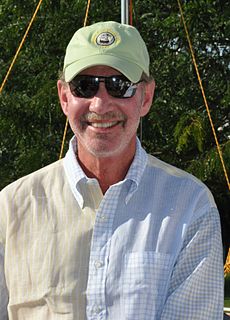A Quote by Richard M. Weaver
Man is an organism, not a mechanism; and the mechanical pacing of his life does harm to his human responses, which naturally follow a kind of free rhythm.
Related Quotes
Man alone, during his brief existence on this earth, is free to examine, to know, to criticize, and to create. In this freedom lies his superiority over the forces that pervade his outward life. He is that unique organism in terms of matter and energy, space and time, which is urged to conscious purpose. Reason is his characteristic and indistinguishing principle. But man is only man -- and free -- when he considers himself as a total being in whom the unmediated whole of feeling and thought is not severed and who impugns any form of atomization as artificial, mischievous, and predatory.
IN THE CINEMA A DIRECTOR EXPRESSES HIS INDIVIDUALITY FIRST AND FOREMOST THROUGH HIS SENSE OF TIME, THROUGH RHYTHM. RHYTHM GIVES COLOUR TO A WORK BY DISTINGUISHABLE STYLISTIC CHARACTERISTICS. RHYTHM MUST ARISE NATURALLY IN A FILM, A FUNCTION OF THE DIRECTOR'S INNATE SENSE OF LIFE AND COMMENSURATE WITH HIS QUEST FOR TIME.
The earth is not a mechanism but an organism, a being with its own life and its own reasons, where the support and sustenance of the human animal is incidental. If man in his newfound power and vanity persists in the attempt to remake the planet in his own image, he will succeed only in destroying himself - not the planet. The earth will survive our most ingenious folly.
To free a man from suffering, he must be set right, put in health; and the health at the root of man's being, his rightness, is to be free from wrongness, that is, from sin. A man is right when there is no wrong in him. I do not mean set free from the sins he has done: that will follow; I mean the sins he is doing, or is capable of doing; the sins in his being which spoil his nature — the wrongness in him — the evil he consents to; the sin he is, which makes him do the sin he does.
What is the importance of human lives? Is it their continuing alive for so many years like animals in a menagerie? The value of a man cannot be judged by the number of diseases from which he escapes. The value of a man is in his human qualities: in his character, in his conscience, in the nobility and magnanimity, of his soul. Torturing animals to prolong human life has separated science from the most important thing that life has produced - the human conscience.
It is God's earth out of which man is taken. From it he has his body. His body belongs to his essential being. Man's body is not his prison, his shell his exterior, but man himself. Man does not "have" a body; he does not "have" a soul; rather he "is" body and soul. Man in the beginning is really his body. He is one. He is his body, as Christ is completely his body, as the Church is the body of Christ
Does it follow from: 'turn ye' that therefore you can turn? Does it follow from "'Love the Lord thy God with all thy heart' (Deut 6.5) that therefore you can love with all your heart? What do arguments of this kind prove, but the 'free-will' does not need the grace of God, but can do all things by its own power....But it does not follow from this that man is converted by his own power, nor do the words say so; they simply say: "if thou wilt turn,telling man what he should do. When he knows it, and sees that he cannot do it, he will ask whence he may find ability to do it..." 164
Very often pessimistic people speak against their own desire. They want to undertake some work, and they say, 'I will do this, but I don't think I shall succeed in it.' Thus they hinder themselves in their path. Man does not know that every thought makes an impression on the consciousness and on the rhythm with which the consciousness is working. According to that rhythm that reflection will come true and happen; and a man proves to be his own enemy by his ignorance of these things.








































